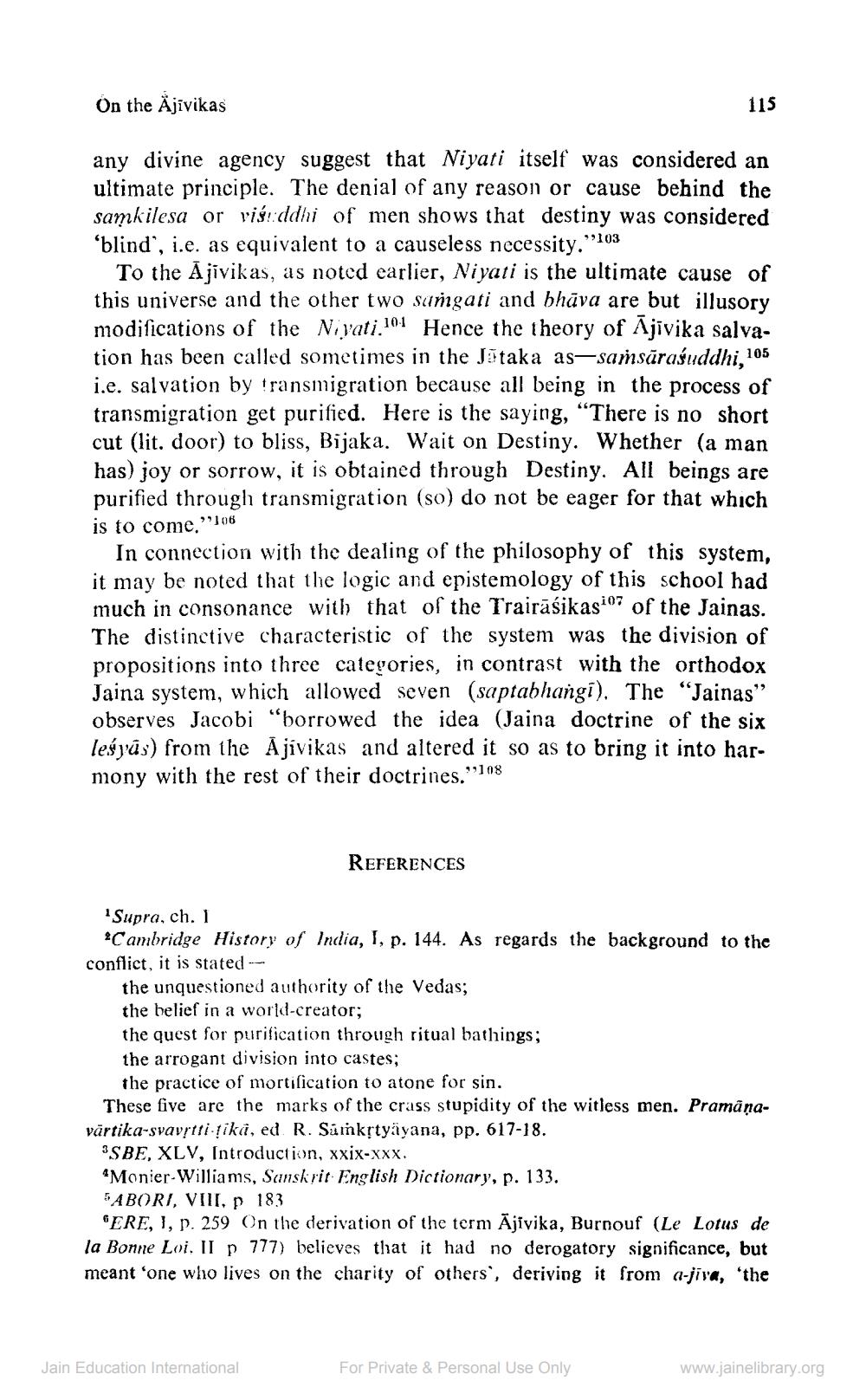________________
On the Äjivikas
any divine agency suggest that Niyati itself was considered an ultimate principle. The denial of any reason or cause behind the samkilesa or viś:ddhi of men shows that destiny was considered 'blind', i.e. as equivalent to a causeless necessity."103
105
To the Ajivikas, as noted earlier, Niyati is the ultimate cause of this universe and the other two samgati and bhāva are but illusory modifications of the Niyati 101 Hence the theory of Ajīvika salvation has been called sometimes in the Jataka as-samsaraśuddhi," i.e. salvation by transmigration because all being in the process of transmigration get purified. Here is the saying, "There is no short cut (lit. door) to bliss, Bijaka. Wait on Destiny. Whether (a man has) joy or sorrow, it is obtained through Destiny. All beings are purified through transmigration (so) do not be eager for that which is to come."106
In connection with the dealing of the philosophy of this system, it may be noted that the logic and epistemology of this school had much in consonance with that of the Trairāśikasi07 of the Jainas. The distinctive characteristic of the system was the division of propositions into three categories, in contrast with the orthodox Jaina system, which allowed seven (saptabhangi). The "Jainas" observes Jacobi "borrowed the idea (Jaina doctrine of the six lesyas) from the Ajivikas and altered it so as to bring it into harmony with the rest of their doctrines."
108
REFERENCES
1Supra, ch. 1
Cambridge History of India, I, p. 144. As regards the background to the conflict, it is stated-
the unquestioned authority of the Vedas;
the belief in a world-creator;
the quest for purification through ritual bathings;
the arrogant division into castes;
115
the practice of mortification to atone for sin.
These five are the marks of the crass stupidity of the witless men. Pramāṇavārtika-svavṛtti-țikā, ed. R. Samkṛtyäyana, pp. 617-18.
3SBE, XLV, Introduction, xxix-xxx.
Monier-Williams, Sanskrit English Dictionary, p. 133.
Jain Education International
ABORI, VIII, p 183
ERE, 1, p. 259 On the derivation of the term Ajivika, Burnouf (Le Lotus de la Bonne Loi, II p 777) believes that it had no derogatory significance, but meant 'one who lives on the charity of others', deriving it from a-jiva, 'the
For Private & Personal Use Only
www.jainelibrary.org




